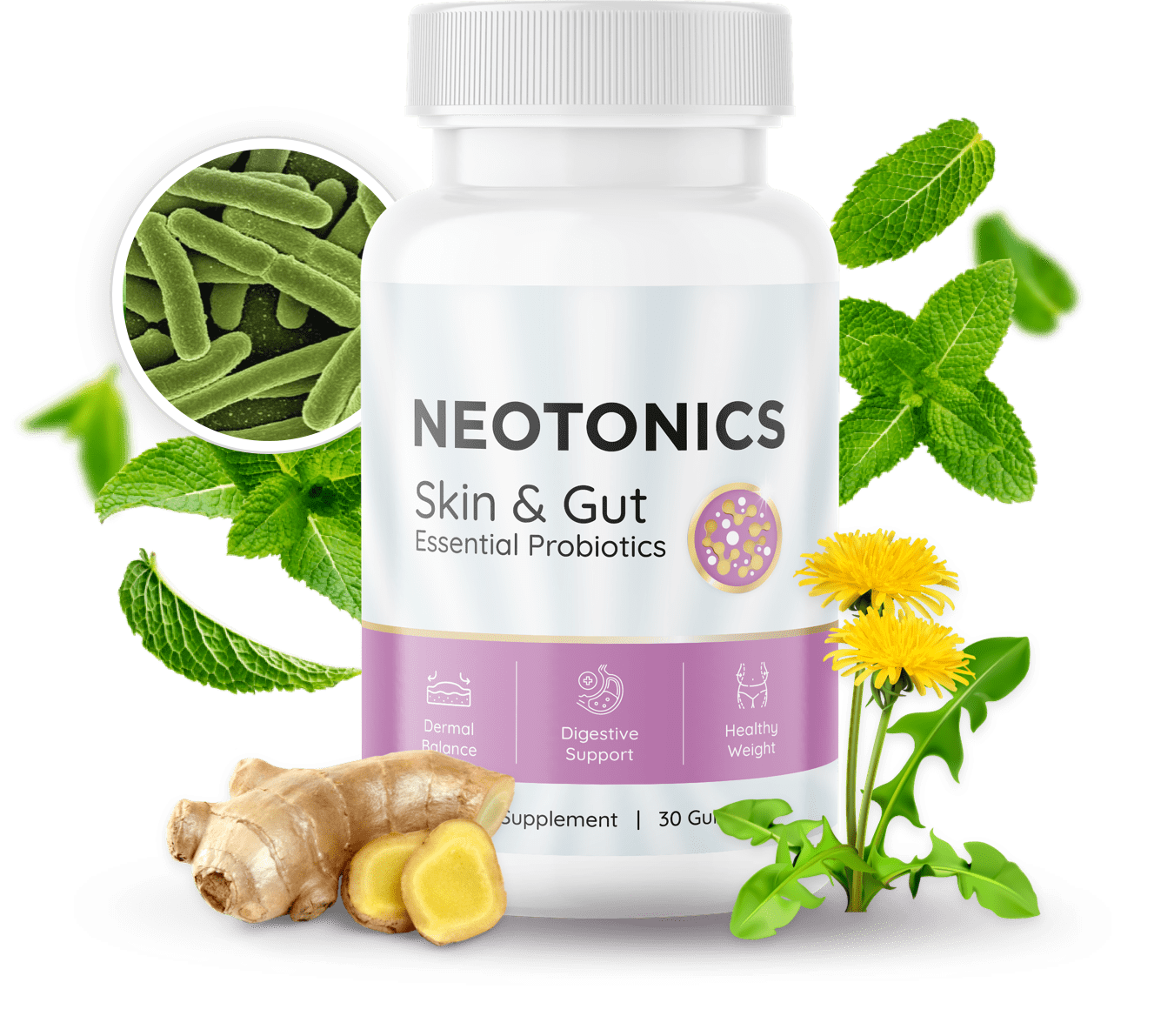The gut-skin connection that many didn’t know existed could help provide insight into why your skin condition worsens when your gut is out of whack. Well, it turns out that there is a strong connection between your gut health and the appearance of your skin. This fascinating relationship, known as the gut-skin connection, sheds light on the important role that your gut plays in maintaining healthy, glowing skin. So, if you’re looking to improve your complexion, it might be time to take a closer look at what’s happening inside your body. In this article, we will explore the intriguing link between gut health and skin and uncover some tips on how you can support both for radiant, blemish-free skin.
Understanding the Gut-Skin Connection
The link between gut health and skin health is a topic that has gained significant attention in recent years. It is now widely understood that there is a strong connection between the two, and the health of your gut can have a profound impact on the condition of your skin. In order to achieve healthy, radiant skin, it is essential to understand the role of the gut microbiome in maintaining skin health.
The role of the gut microbiome in skin health
The gut microbiome refers to the billions of bacteria and other microorganisms that reside in your gastrointestinal tract. These microorganisms play a crucial role in maintaining the health of your gut, but their impact extends far beyond digestion. Research has shown that the composition and diversity of the gut microbiome can have a profound effect on the health of your skin.
The gut microbiome helps to regulate the immune system and plays a vital role in maintaining a balanced inflammatory response. When the balance of bacteria in the gut is disrupted, it can lead to a range of skin conditions, including acne, eczema, psoriasis, and rosacea. This is because an imbalance in the gut microbiome can trigger an inflammatory response in the body, which can manifest as skin inflammation and other dermatological issues.
The Impact of Gut Health on Skin Conditions
Acne
Acne is a common skin condition that affects people of all ages. While it is often associated with hormonal changes during adolescence, research has shown that the health of your gut can also influence the development of acne. Studies have found that individuals with acne tend to have an imbalance in their gut microbiome, with an overgrowth of certain bacteria. This imbalance can lead to increased inflammation in the body, which can exacerbate acne symptoms.
Eczema
Eczema, also known as atopic dermatitis, is a chronic skin condition that is characterized by dry, itchy, and inflamed skin. While the exact cause of eczema is not fully understood, research suggests that an imbalance in the gut microbiome may play a role in its development. Studies have shown that individuals with eczema often have a reduced diversity of bacteria in their gut, which can contribute to increased inflammation and skin barrier dysfunction.
Psoriasis
Psoriasis is an autoimmune skin condition that causes the rapid buildup of skin cells, resulting in thick, red, and scaly patches. While the exact cause of psoriasis is unknown, research has shown that individuals with psoriasis tend to have an imbalance in their gut microbiome. This imbalance can trigger an abnormal immune response, leading to inflammation in the skin and the development of psoriasis symptoms.
Rosacea
Rosacea is a chronic skin condition that primarily affects the face, causing facial redness, flushing, and the formation of small, red bumps. Although the exact cause of rosacea is unknown, research suggests that an imbalance in the gut microbiome may contribute to its development. Studies have found that individuals with rosacea tend to have a higher prevalence of certain bacteria in their gut, which can trigger inflammation and worsen rosacea symptoms.

Factors Influencing the Gut-Skin Connection
Diet and nutrition
One of the most important factors influencing the gut-skin connection is diet and nutrition. A balanced and nutritious diet is essential for maintaining a healthy gut microbiome and, in turn, promoting healthy skin. Consuming a variety of fruits, vegetables, whole grains, and lean proteins can provide the essential vitamins, minerals, and antioxidants needed to support both gut and skin health.
However, a diet high in processed foods, refined sugars, and unhealthy fats can disrupt the balance of bacteria in the gut, leading to inflammation and skin problems. It is important to prioritize whole, unprocessed foods and limit foods that can negatively impact gut health, such as sugary snacks and drinks, fried foods, and excessive alcohol consumption.
Stress and mental health
Stress and mental health also play a significant role in the gut-skin connection. The gut is often referred to as the “second brain” due to the strong connection between the gut and the central nervous system. When you experience stress, it can impact the health of your gut, leading to an imbalance in the gut microbiome and increased inflammation in the body. This can trigger or worsen skin conditions such as acne, eczema, and rosacea.
Managing stress through techniques like meditation, exercise, and adequate sleep can help support a healthy gut and promote better skin health. Taking time for self-care and engaging in activities that bring you joy can also have a positive impact on your mental health and, in turn, improve the health of your gut and skin.
Antibiotic use and gut health
Antibiotics are commonly prescribed to treat bacterial infections, but they can also have a significant impact on the gut microbiome. While antibiotics can be life-saving in certain situations, they can also disrupt the delicate balance of bacteria in the gut, leading to an overgrowth of harmful bacteria and a reduction in beneficial bacteria. This imbalance can contribute to inflammation and skin problems.
If you need to take antibiotics, it is important to discuss with your healthcare provider about strategies to support gut health during and after the course of antibiotics. This may include taking a probiotic supplement or increasing your intake of fermented foods, such as yogurt and sauerkraut, which can help restore the balance of bacteria in the gut.
Hormonal imbalances
Hormonal imbalances can also influence the gut-skin connection. Hormones play a crucial role in regulating various bodily functions, including the health of the gut and the skin. Fluctuations in hormone levels, such as those that occur during puberty, pregnancy, and menopause, can impact the balance of bacteria in the gut and contribute to the development or worsening of skin conditions.
Maintaining hormonal balance through a healthy lifestyle, including regular exercise, adequate sleep, and managing stress, can help support a healthy gut and minimize the impact of hormonal imbalances on the skin.
How to Improve Gut Health for Better Skin
Balanced and nutritious diet
One of the most effective ways to improve gut health for better skin is to prioritize a balanced and nutritious diet. Incorporating a variety of fruits, vegetables, whole grains, lean proteins, and healthy fats into your meals can provide the essential nutrients needed to support a healthy gut microbiome and promote radiant skin.
It is also important to prioritize fiber-rich foods, such as legumes, whole grains, and colorful fruits and vegetables, as fiber acts as fuel for the beneficial bacteria in the gut. Additionally, staying hydrated by drinking an adequate amount of water throughout the day can help support digestive health and promote skin hydration.
Probiotic and prebiotic supplements
Probiotics are live bacteria and yeasts that are beneficial for gut health. They can help restore the balance of bacteria in the gut and support overall digestive and immune health. Probiotic supplements are available in various forms, such as capsules, powders, and fermented foods like yogurt and kefir.
Prebiotics, on the other hand, are types of dietary fibers that serve as food for the beneficial bacteria in the gut. Consuming prebiotic-rich foods, such as onions, garlic, bananas, and whole grains, can help promote the growth and activity of beneficial bacteria.
Both probiotic and prebiotic supplements can be valuable additions to a healthy diet and may help improve gut health, which can, in turn, lead to healthier skin.
Managing stress and mental health
As mentioned earlier, stress and mental health can have a significant impact on the gut-skin connection. Finding effective ways to manage stress and prioritize your mental well-being is essential for maintaining a healthy gut and improving skin health.
Engaging in stress-reduction techniques such as meditation, deep breathing exercises, yoga, and regular exercise can help lower stress levels and support a healthy gut. Additionally, seeking support from a mental health professional or engaging in activities that bring joy and relaxation can have a positive impact on both mental and gut health.
Limiting antibiotic use
While antibiotics are necessary in certain situations, it is important to use them judiciously and only when medically necessary. Whenever possible, discuss alternative treatment options with your healthcare provider and consider the potential impact of antibiotics on your gut health and skin.
If you do need to take antibiotics, be sure to follow the prescribed course as directed and discuss with your healthcare provider about strategies to support gut health during and after the course of antibiotics.
Supporting hormonal balance
Maintaining hormonal balance is crucial for both overall health and skin health. Strategies to support hormonal balance include regular exercise, adequate sleep, and stress management techniques. If you experience hormonal imbalances that affect your skin, it may be beneficial to consult with a healthcare provider who specializes in hormone health, such as an endocrinologist or a naturopathic doctor.
They can help identify any underlying hormonal imbalances and recommend appropriate treatment options, which may include lifestyle modifications, hormone replacement therapies, or natural remedies.
The Importance of a Healthy Gut for Overall Well-being
In addition to the impact on skin health, a healthy gut is vital for overall well-being. The gut plays a key role in immune function, digestive health, nutrient absorption, and even brain health.
Effects on immune function
The gut is home to a significant portion of the immune system, and a healthy gut microbiome is essential for optimal immune function. The beneficial bacteria in the gut help regulate the immune response, preventing the overactivation of the immune system and reducing inflammation in the body. By supporting a healthy gut, you can help strengthen your immune system and improve your body’s ability to fight off infections and diseases.
Digestive health
The gut is responsible for the digestion and absorption of nutrients from the food we eat. A healthy gut microbiome promotes efficient digestion, allowing for the breakdown of food and the absorption of essential nutrients. Poor gut health, on the other hand, can lead to digestive issues such as bloating, gas, constipation, or diarrhea. By maintaining a healthy gut, you can support optimal digestion and ensure that your body receives the nutrients it needs for overall health and well-being.
Nutrient absorption
In addition to digestion, the gut is responsible for the absorption of nutrients from the food we consume. A healthy gut microbiome plays a crucial role in this process, helping to break down nutrients and facilitate their absorption into the bloodstream. Without a healthy gut, the absorption of essential vitamins, minerals, and other nutrients can be compromised, leading to nutrient deficiencies and potential health problems. By prioritizing gut health, you can maximize the absorption of nutrients and support overall health and vitality.
Brain health
The gut is often referred to as the “second brain” due to the strong connection between the gut and the central nervous system. This connection, known as the gut-brain axis, allows for bidirectional communication between the gut and the brain. Research has shown that the gut microbiome can influence brain health and function, including mood regulation and cognitive performance.
By maintaining a healthy gut, you can support optimal brain health and potentially reduce the risk of mental health conditions such as anxiety and depression. Additionally, supporting gut health through a balanced diet and stress reduction techniques can help improve focus, concentration, and overall cognitive function.
Conclusion
The gut-skin connection is a fascinating and complex relationship that highlights the importance of maintaining a healthy gut for radiant skin and overall well-being. The gut microbiome plays a crucial role in regulating the immune system, reducing inflammation, and supporting optimal skin health. By prioritizing a balanced and nutritious diet, managing stress and mental health, limiting antibiotic use, and supporting hormonal balance, you can improve gut health and promote healthier, more vibrant skin. Remember, a healthy gut is not only essential for skin health but also for immune function, digestive health, nutrient absorption, and even brain health. Take steps to support your gut, and you’ll reap the rewards of better skin and overall well-being.



